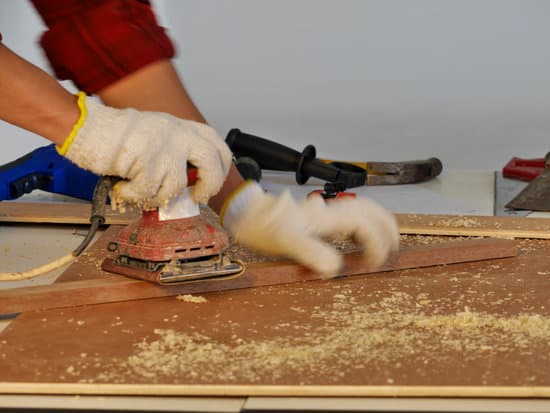Are you wondering how to get a grant for home improvement? Home improvement grants are a valuable resource for homeowners looking to make upgrades or repairs to their homes without breaking the bank. These grants provide financial assistance to eligible individuals or families, helping them improve the safety, accessibility, and overall quality of their living spaces. Understanding what home improvement grants are and how they work is crucial for those seeking this type of funding.
Home improvement grants typically come from government agencies, non-profit organizations, or private foundations with a focus on housing and community development. The funds awarded through these grants can be used for a variety of purposes, including fixing structural issues, upgrading energy efficiency, or making necessary modifications for aging in place. By leveraging these grants, homeowners can enhance their properties while also increasing their property value.
To qualify for home improvement grants, applicants must meet specific eligibility criteria set by the grant provider. Factors such as income level, property ownership status, and location may impact an individual’s chances of receiving funding.
It’s essential to thoroughly research the requirements of each grant program before applying to ensure that you meet all necessary qualifications. By understanding the basics of home improvement grants and how they function, homeowners can take the first step towards securing financial assistance for their renovation projects.
Benefits of Home Improvement Grants
Home improvement grants offer a wide range of benefits that make them an attractive option for homeowners looking to upgrade their properties without breaking the bank. One of the primary advantages of these grants is that they provide financial assistance to cover the costs of necessary repairs, renovations, and upgrades. This can be especially helpful for low-income households or individuals who may not have the resources to fund these projects on their own.
Additionally, home improvement grants can help improve the overall quality and safety of a home, ultimately enhancing its value in the long run. By making structural improvements or energy-efficient upgrades, homeowners can potentially increase the resale value of their property while also enjoying a more comfortable living space. Many grant programs focus on promoting sustainability and environmental responsibility, encouraging homeowners to make eco-friendly choices that benefit both their homes and the planet.
Moreover, receiving a home improvement grant can alleviate financial stress and reduce the need for high-interest loans or credit card debt to fund essential home repairs. With grant funding, homeowners can tackle urgent maintenance issues or make cosmetic enhancements without worrying about incurring additional debt. This financial support can give homeowners peace of mind and allow them to focus on improving their living conditions without straining their finances.
| Benefits of Home Improvement Grants | Why Consider Applying for One? |
|---|---|
| Financial assistance for repairs and upgrades | Helps improve quality and safety of home |
| Enhances property value | Promotes sustainability and eco-friendly choices |
| Reduces financial stress and reliance on loans | Funds urgent maintenance without adding debt |
Eligibility Criteria for Home Improvement Grants
Home improvement grants can be a great way to fund renovations or repairs to your home without having to dip into your savings. However, in order to qualify for these grants, there are specific eligibility criteria that you must meet. Here are some common requirements that homeowners need to satisfy in order to be considered for a home improvement grant:
- Income Level: Many home improvement grants are income-based, meaning that they are specifically designed to assist low-income households. To qualify, you may need to provide proof of your income through pay stubs, tax returns, or other financial documents.
- Home Ownership: In most cases, only homeowners are eligible to apply for home improvement grants. If you rent your home or live in public housing, you may not be able to access these funding opportunities.
- Property Location: Some grants are targeted towards specific geographic areas or neighborhoods with particular needs. Make sure to check the eligibility requirements of the grant programs you are interested in to see if your property qualifies.
It’s important to note that the eligibility criteria for home improvement grants can vary depending on the specific program and funding source. Some grants may have additional requirements such as the age of your home, the type of improvements you plan to make, or whether you have any existing liens on your property.
If you meet the basic eligibility criteria for a home improvement grant, it’s worth taking the time to research different grant programs and see which ones align with your needs and goals. Remember that each program may have its own application process and timeline, so be sure to read the guidelines carefully before submitting your application.
How to Find Home Improvement Grants
If you are looking to make improvements to your home but are worried about the costs involved, consider exploring the option of home improvement grants. These grants are essentially free money that homeowners can apply for to help fund renovations, repairs, or upgrades to their properties. But where do you begin in your search for these valuable resources?
One of the first places to look for home improvement grants is through government agencies at the federal, state, and local levels. Many governments offer various grant programs aimed at assisting homeowners with making their homes more safe, energy-efficient, or accessible. Websites such as Grants.gov or HUD.gov can be great starting points in discovering available grants in your area.
In addition to government agencies, private organizations and non-profit groups also offer home improvement grants to help individuals improve their living conditions. These organizations may have specific eligibility criteria or focus areas for their grant programs, so it’s essential to carefully research each opportunity before applying. Local community foundations, housing agencies, or even utility companies may also provide funding for home improvement projects through grants.
Be proactive in seeking out these resources by reaching out directly or checking their websites for more information on how to apply. By exploring a variety of sources, you increase your chances of finding the right grant program that fits your needs and goals for improving your home.
Tips for Writing a Winning Grant Proposal
When applying for a grant for home improvement, it is crucial to craft a winning grant proposal that highlights the key elements necessary to secure funding for your project. By effectively communicating the purpose of your home improvement project and outlining a clear plan of action, you can increase your chances of being awarded a grant. Here are some tips on writing a successful grant proposal:
Clearly Define Your Project
Begin your grant proposal by clearly defining the scope of your home improvement project. Include details such as the specific areas of your home that require upgrades or repairs, the materials you plan to use, and the overall goal of the project. Providing a thorough description helps grant providers understand the impact your project will have on your home and community.
Demonstrate Need
One key element in any successful grant proposal is demonstrating the need for financial assistance. Provide evidence of why your home improvement project is necessary, such as outdated infrastructure, safety hazards, or accessibility issues. By clearly outlining the urgency of your project, you can make a compelling case for why you deserve funding support.
Develop a Detailed Budget
A well thought out budget is essential in any grant proposal for home improvement projects. Compile a detailed list of all expenses related to your project, including materials, labor costs, permits, and any other necessary expenditures. Be sure to include accurate cost estimates and explain how the grant funds will be used to achieve the objectives outlined in your proposal.
By incorporating these key elements into your grant proposal, you can effectively communicate the importance of your home improvement project and increase your chances of securing funding through grants. Remember to tailor each proposal to fit the specific requirements of each grant provider and seek feedback from peers or professionals before submitting your application.
With careful planning and attention to detail, you can position yourself for success in obtaining a grant for home improvement projects that will enhance the quality and value of your home.
Common Mistakes to Avoid When Applying for Home Improvement Grants
When applying for home improvement grants, it is important to be aware of common mistakes that can hinder your chances of securing funding for your project. By understanding these pitfalls and taking steps to avoid them, you can increase the likelihood of a successful grant application. Here are some key mistakes to watch out for:
- Not researching eligibility criteria thoroughly: One of the most crucial aspects of applying for a home improvement grant is ensuring that you meet all the eligibility requirements. Before submitting your application, take the time to carefully review the criteria set forth by the grant provider. Failure to meet any of these requirements could result in automatic disqualification.
- Missing deadlines: Grant applications typically have strict deadlines that must be adhered to in order to be considered. It is essential to not only know when the deadline is but also to allow yourself enough time to gather all necessary documents and information required for your application. Missing a deadline can result in your application being rejected outright.
- Submitting an incomplete or poorly written proposal: Your grant proposal is your opportunity to make a strong case for why you deserve funding for your home improvement project. Be sure to provide detailed information about the work you plan to undertake, how it will benefit your home or community, and why you are qualified to carry out the project.
An incomplete or poorly written proposal may give reviewers a negative impression and decrease your chances of approval.
Avoiding these common mistakes when applying for home improvement grants can greatly enhance your chances of success in securing funding for your project. By being diligent in your research, adhering to deadlines, and submitting a well-written proposal, you can position yourself as a strong candidate for grant approval.
Remember, seeking out resources and guidance on how to get a grant for home improvement can also help steer you in the right direction as you navigate the application process. With careful attention to detail and proactive planning, you can increase your chances of receiving financial assistance for your home improvement endeavors.
The Approval Process
After the initial review, some grant programs may require additional steps such as a home inspection to verify the improvements needed or a budget assessment to determine the amount of funding required. Be prepared for possible follow-up questions regarding your application or further clarification on your proposed home improvement project. It is crucial to respond promptly and thoroughly to any requests for additional information to expedite the approval process.
Once your application has been reviewed and all necessary steps have been completed, you will receive notification regarding the status of your grant application. This notification can come in various forms, including an approval letter outlining the grant amount awarded, a request for revisions or additional information, or unfortunately, a rejection letter with reasons for denial. If approved, you will then typically receive instructions on how to access the funding and proceed with your home improvement project.
| Approval Process Step | Details |
|---|---|
| Initial Review | Thorough assessment of eligibility and documentation |
| Additional Steps | Possible home inspection or budget assessment requirements |
| Notification | Approval, request for more information, or denial with reasons provided |
Success Stories
When Susan Renovated Her Kitchen
Susan, a single mother of two, had been wanting to renovate her outdated kitchen for years but couldn’t afford the expense. After learning about home improvement grants, she decided to research various options available to her. Through a local government program aimed at assisting low-income families with home repairs and upgrades, Susan was able to secure a grant that covered the cost of materials and labor for her kitchen renovation project.
John’s Experience With Landscaping Improvements
John and his family had recently purchased an older home with a large yard that needed extensive landscaping work. Wanting to improve their outdoor space but facing budget constraints, they turned to home improvement grants for assistance. By meticulously following the application guidelines and providing detailed estimates from contractors, John was successful in securing a grant that allowed them to transform their backyard into a beautiful oasis for their family to enjoy.
Amy’s Journey Towards Energy-Efficient Upgrades
Amy was committed to reducing her carbon footprint and making her home more energy-efficient. When she discovered the availability of grants specifically aimed at promoting sustainable home improvements, she wasted no time in applying. By outlining her plans for installing solar panels, upgrading insulation, and replacing old appliances with energy-efficient models, Amy was able to secure a grant that not only helped lower her utility bills but also significantly reduced her environmental impact.
Conclusion
In conclusion, securing a grant for home improvement can be a valuable resource for homeowners looking to make necessary upgrades and repairs to their properties. Understanding the ins and outs of home improvement grants, including what they are, how they work, and where to find them, is essential in successfully navigating the application process. By considering the eligibility criteria, benefits of these grants, and tips for writing a winning proposal, homeowners can increase their chances of receiving approval for funding.
The key to obtaining a grant for home improvement lies in thorough research, diligent preparation, and attention to detail when submitting your application. By learning from common mistakes to avoid and heeding advice from successful grant recipients, homeowners can position themselves for success in securing funding for their projects. The approval process may require patience and follow-up communication with grant providers, but those who persevere often find the investment well worth the effort.
To sum up, knowing how to get a grant for home improvement involves a combination of knowledge, strategy, and perseverance. By leveraging available resources, following best practices in grant proposal writing, and staying informed about eligibility requirements and application procedures, homeowners can increase their likelihood of receiving funding for their renovations or repairs.
Whether seeking assistance with energy efficiency upgrades or structural improvements, home improvement grants offer a valuable opportunity to enhance the livability and value of one’s property without shouldering the full financial burden alone.
Frequently Asked Questions
Who Is Eligible for Government Home Improvement Grant in Wisconsin?
Eligibility for government home improvement grants in Wisconsin typically depends on various factors such as income level, location, and specific needs. Low-income individuals or families may be eligible for assistance through programs aimed at improving living conditions and safety.
What Is the Ohio Housing Assistance Grant Program?
The Ohio Housing Assistance Grant Program is designed to provide financial aid to eligible homeowners who are struggling to afford necessary repairs or improvements to their homes. This program aims to help low-income individuals maintain safe and habitable living conditions.
What to Do When Your House Is Falling Apart and You Have No Money?
When your house is falling apart and you have no money, it can be a stressful situation. However, there are options available to help address the issue.
You can seek assistance from non-profit organizations, apply for government grants or loans, look into community programs, or explore crowdfunding options to gather funds for necessary repairs. It’s important to explore all available resources and find a solution that fits your specific needs and circumstances.

I’m thrilled to have you here as a part of the Remodeling Top community. This is where my journey as an architect and remodeling enthusiast intersects with your passion for transforming houses into dream homes.





